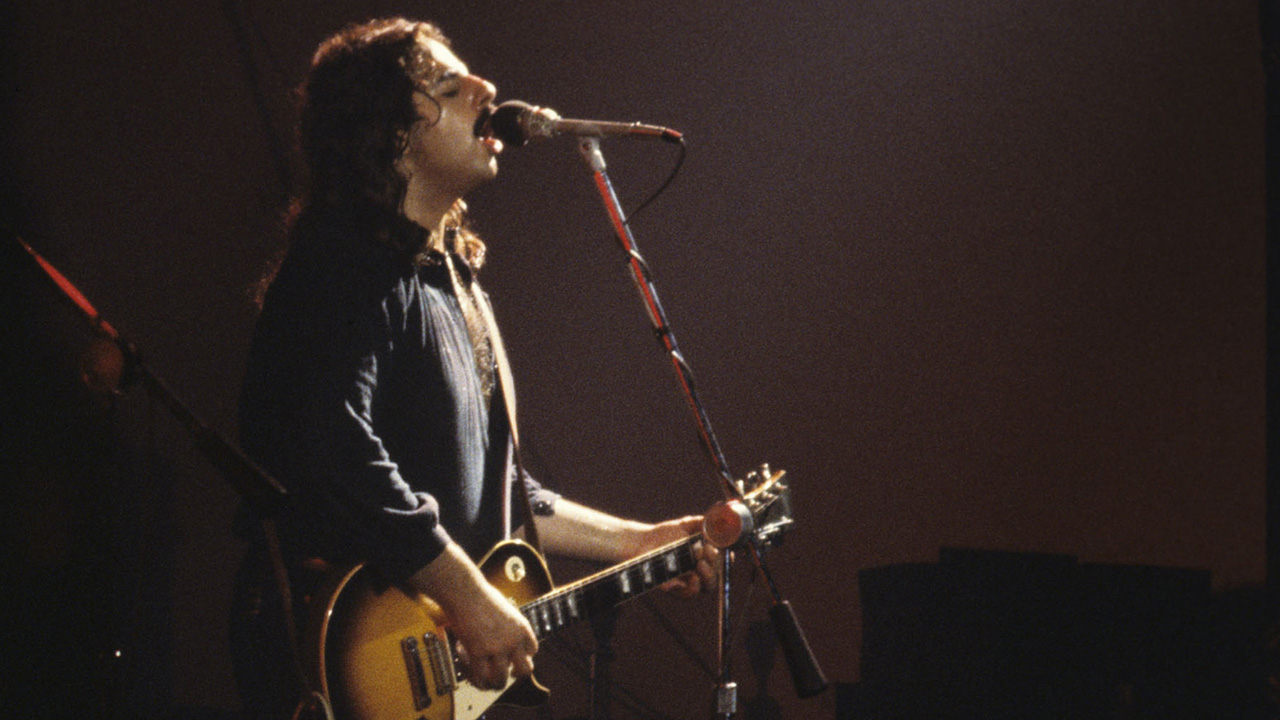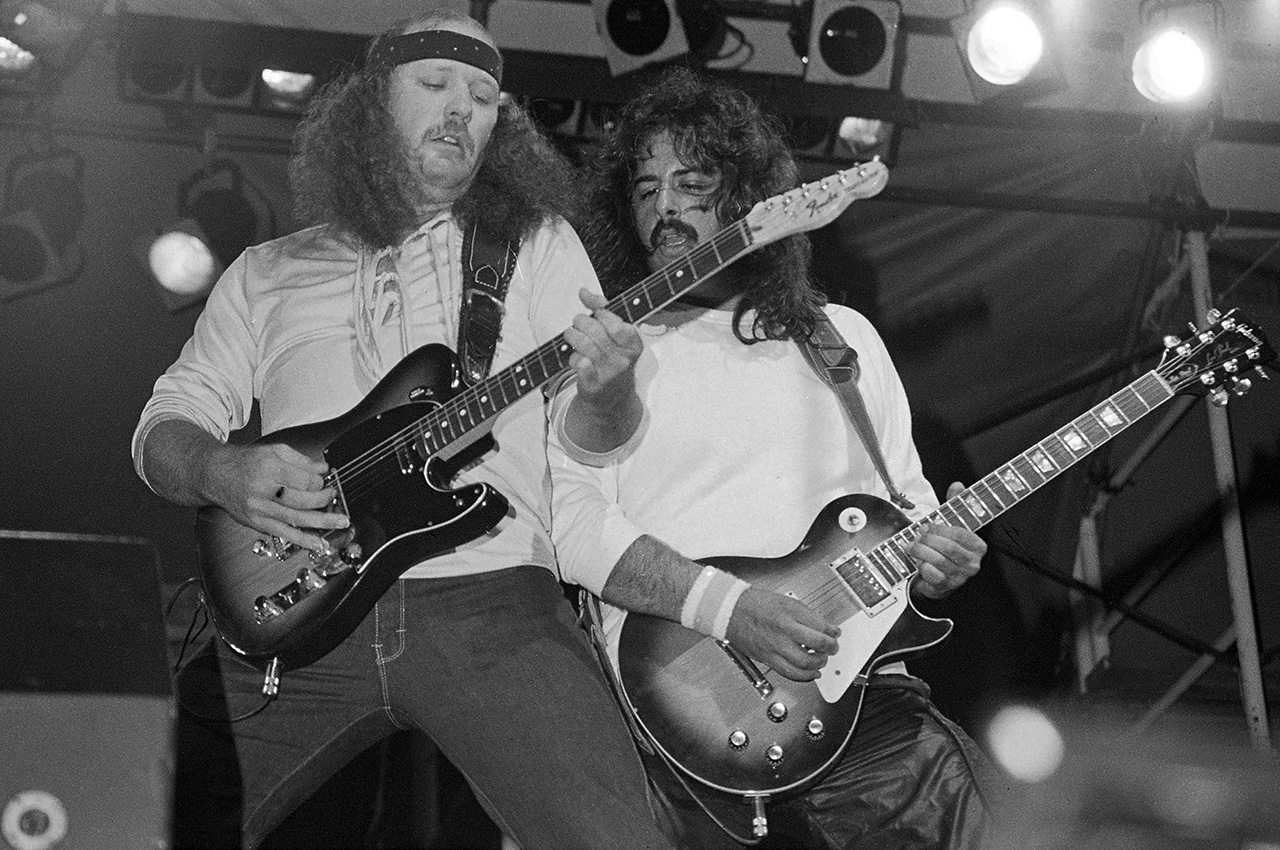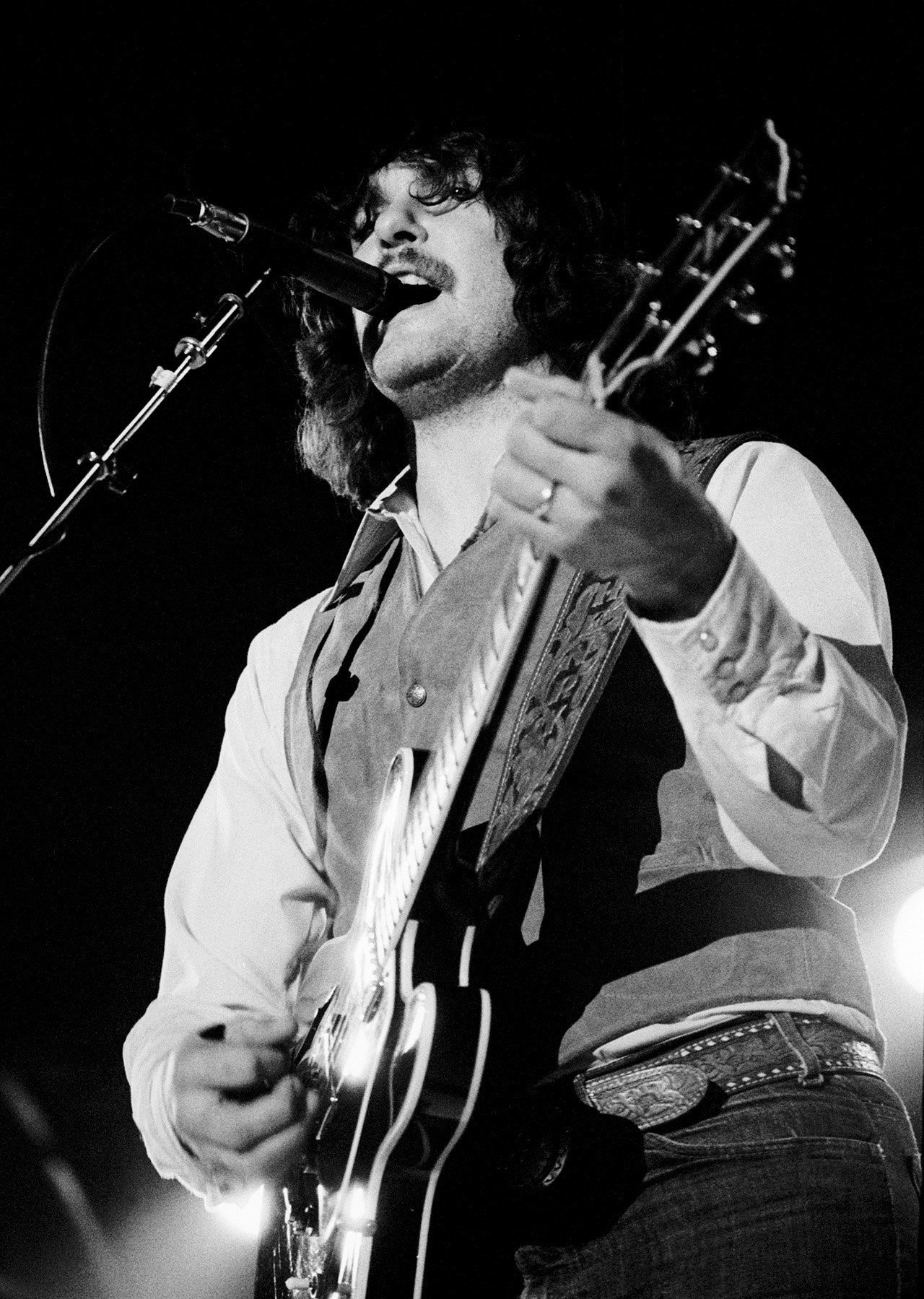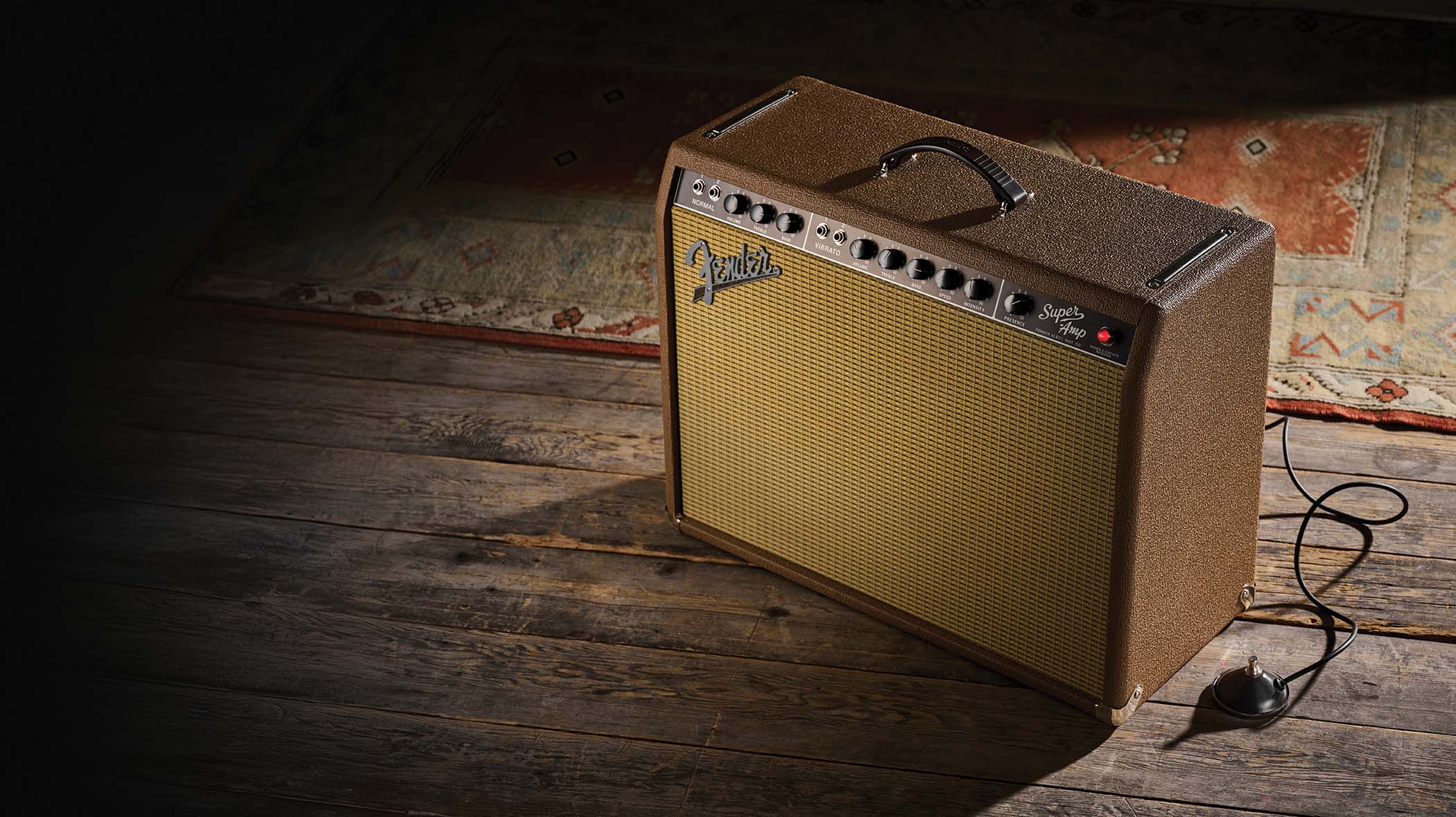“Eddie Van Halen said, ‘How do you guys do that with three guitars? I have a hard enough time with just myself!’” A salute to Freddie Salem, the guitar ace who delivered licks for Barbra Streisand, and Southern rock fire and brimstone with the Outlaws
The late guitarist went from hard-rock hijinks to a well-respected session career, and had skills and stories – a smoke with Johnny Depp in full Jack Sparrow dress, a 9 a.m. whiskey with Keith Richards – aplenty, but always remained humble and easy-going

In September 2024, when former Outlaws guitarist Freddie Salem died at the age of 70, celebrity-chasing tabloids OK and People were among the least expected outlets to report the news – which would have raised a hearty laugh from Freddie himself.
Despite playing prestigious venues like Madison Square Garden, rubbing shoulders with the Rolling Stones, Eddie Van Halen, and Thin Lizzy, and a 50-year session career that included work with Barbara Streisand and on major movie soundtracks, there was no rock star pretentiousness or star-tripping about the man.
The tributes from former bandmates, peers, and friends all highlighted Freddie’s warmth, humor, and generosity of spirit – qualities to which I can testify first hand.
During our first chat in 2012, we struck up a friendship which continued right up until his death from cancer complications. The GW brief was to cover his adventures with the Outlaws, his encounters with legendary players like EVH, and to gain an insight into his long career.
After that, Freddie’s tireless schedule of session work prevented anything other than regular weekend catch-up phone chats. However, in our previous radio interviews, he shared highlights of his six-year run with the hard-touring Outlaws.
During the course of our friendship he shared stories of his beginnings in 1973 –when he arrived as a 19-year-old in LA from Akron, Ohio carrying “a Les Paul and $500 to my name” – to his eventual life of movie and TV soundtracks.
He landed session work shortly after his arrival in LA, and was thrilled to bump into legendary session guitarist Tommy Tedesco in a studio. On telling Tedesco he planned to follow in his footsteps, the Wrecking Crew lynchpin assured him, “I think you’re gonna be OK.”
All the latest guitar news, interviews, lessons, reviews, deals and more, direct to your inbox!
Freddie’s six-string prowess also landed him a gig with psychedelic soul outfit the Chambers Brothers. After playing on 1973’s Unbonded and touring with the band until the following year, he began recording demos while continuing as a session player.
After we got done, Edward Van Halen walked up to me with a befuddled look and said, ‘How do you guys do that with three guitars? I have a hard enough time with just myself!
One memorable assignment occurred when a producer randomly entered the studio where Freddie was working and asked him to add guitar to a track. It turned out to be Barbra Streisand's monster hit The Way We Were – although Freddie never actually met her.
His big break with the Outlaws arrived in 1977, and coincided with the band's shift from the Southern/country rock hybrid of their first two albums to a harder-edged direction, following the departure of vocalist/rhythm guitarist Henry Paul.
“Their manager had received some demo tapes of mine,” Freddie told me, “which I had recorded in Seattle around 1974 -75. I met the Outlaws in Los Angeles. They were opening for Boston at the Long Beach Arena, and I was auditioning the demos that I'd done for Epic.
“We became friends; then six months later, they wanted me to fly down to Tampa to audition. The first song was Hurry Sundown. It was an explosion! Hughie Thomasson and Billy Jones said, ‘Let’s continue this.’ I always liked heavier, high-energy music, so that’s what we became.”

On stage, the trio’s ability to trade ripping solos with apparent ease turned the head of a bona fide guitar legend.
“We played a stadium gig in South Carolina with Boston, Todd Rundgren, and Van Halen,” Freddie recalled. “After we got done, Edward Van Halen walked up to me with a befuddled look and said, ‘How do you guys do that with three guitars? I have a hard enough time with just myself!’
“I go, ‘Well, we rehearse. We try not to step on each other’s toes.’ He goes, ‘I’ve never heard anything like that in my life.’ Van Halen had just surfaced and were super hot. That first album was such an innovative milestone.”
Around the same time, Freddie had an unforgettable breakfast meeting at the New York headquarters of Rolling Stones Records, to discuss a possible solo deal. While listening to Freddie’s demo, the executive said, “I think we can do something.”
Then suddenly, the executive’s eyes became “as big as dinner plates” and he scurried away from his desk. His place was taken by Keith Richards, who appeared to have been partying for quite a while.
Undeterred by the fact that it was not yet 9:00 AM, the executive returned, placed a bottle of Jack Daniels and two glasses on the desk, then left. Richards filled both glasses and offered Freddie a Marlboro, as the demo tape continued to play in the background.
Keith went over to the tape deck. Would he comment on Freddie's demo? Approve the potential deal? Sadly, no; ejecting the demo, Richards threw it over his shoulder and retrieved a cassette from his jacket.
Was Freddie about to receive a sneak preview of unreleased Stones tracks? Again, sadly no; when Richards pressed play, the office was filled with the soulful sounds of Gladys Knight and the Pips.
He refilled their glasses and asked, “Who are ya, mate?” Freddie introduced himself, stating that he was a member of the Outlaws. Richards cordially recalled that the Outlaws had opened for the Stones on the 1978 Some Girls tour, but said no more.

Draining his glass, he left the office, and the executive did not return. With half a bottle of Jack in him, Freddie went home to sleep it off. The embarrassed executive was mysteriously unavailable thereafter.
Sensing that Southern rock was on the wane, he opted to leave the Outlaws on a high in 1983. After a brief mid-80s stint with hard rockers the Godz, he returned to sessions, in addition to working extensively as a producer with everyone from Olivia Newton John to Natalie Cole.
He told me about the changes the session world had undergone in the new millennium, saying the majority no longer involved playing on tracks for recording artists, but centered instead around movie and TV soundtracks.
Recordings were made on sound stages, and security was of paramount importance to prevent footage being leaked in advance. On arrival, Freddie was required to hand in his phone and sign a non-disclosure agreement. He wasn’t told the title of the production.
Once inside he would sight read from sheet music while playing along with a full orchestra, while a movie screen showed the relevant footage. The pressure was intense – one wrong note would bring the whole session to a standstill.
As a respected veteran, Freddie was in constant demand until the end of his life. During rare moments of downtime, he continued work on his own music, including fiery hard rock tracks which took up where his Outlaws material left off, overlaid with molten solos.
Despite the gold discs and stadium tours of the Outlaws days, Freddie remained humble and down to earth, as illustrated by an anecdote he told me a couple of years ago.
While working at an LA movie studio, he popped outside for a smoke, to be approached by none other than Johnny Depp, in full Jack Sparrow pirate regalia, asking for a cigarette. They chatted away as they smoked.
A few weeks later, Freddie was in an LA bar one evening when Depp tapped him on the shoulder and said hello – no doubt turning a few heads in the process – then walked away. As Freddie told me the story, he chuckled incredulously at the thought of a major movie star coming to greet him.
He spoke with particular fondness of the many dates the Outlaws played with Thin Lizzy. “We just loved the band,” he enthused, “and constantly listened to them.”
In August 1981, the two groups appeared at Germany’s Loreley Festival. Their sets were broadcast on the long-running Rockpalast TV show shortly thereafter, and in 2023, MiG Records posted the Outlaws' performance on YouTube. Set closer Ghost Riders In The Sky (see 52:10 above) illustrates emphatically why they were nicknamed the Florida Guitar Army. They’d melt your face, and you’d thank them for it.
Rich Davenport is guitarist and vocalist with punk/ska punk/punky reggae merchants Vicious Bishop, and is a former member of Radio Stars, Atomkraft, and Martin Gordon’s Mammals. He swears by Orange amps and pedals, which is entirely appropriate for a ginger. In addition to making loud noises, he’s also written about loud noises for Classic Rock, Record Collector, Vive Le Rock, and Rock Candy. He’s interviewed such six-stringers as Ritchie Blackmore, Joe Bonamassa, Michael Schenker, Ty Tabor (Kings X), Peter Tork (The Monkees), Scott Gorham (Thin Lizzy), Pat McManus, Steve Hunter (Alice Cooper, Lou Reed), Ed King (Lynyrd Skynyrd), Vivian Campbell (Dio, Def Leppard), George Lynch (Dokken), Steve Lukather (Toto) and Lita Ford.
You must confirm your public display name before commenting
Please logout and then login again, you will then be prompted to enter your display name.

![[Ghost] Riders In the Sky (Digitally Remastered, 1996) - YouTube](https://img.youtube.com/vi/2a7VEFsIMSM/maxresdefault.jpg)

